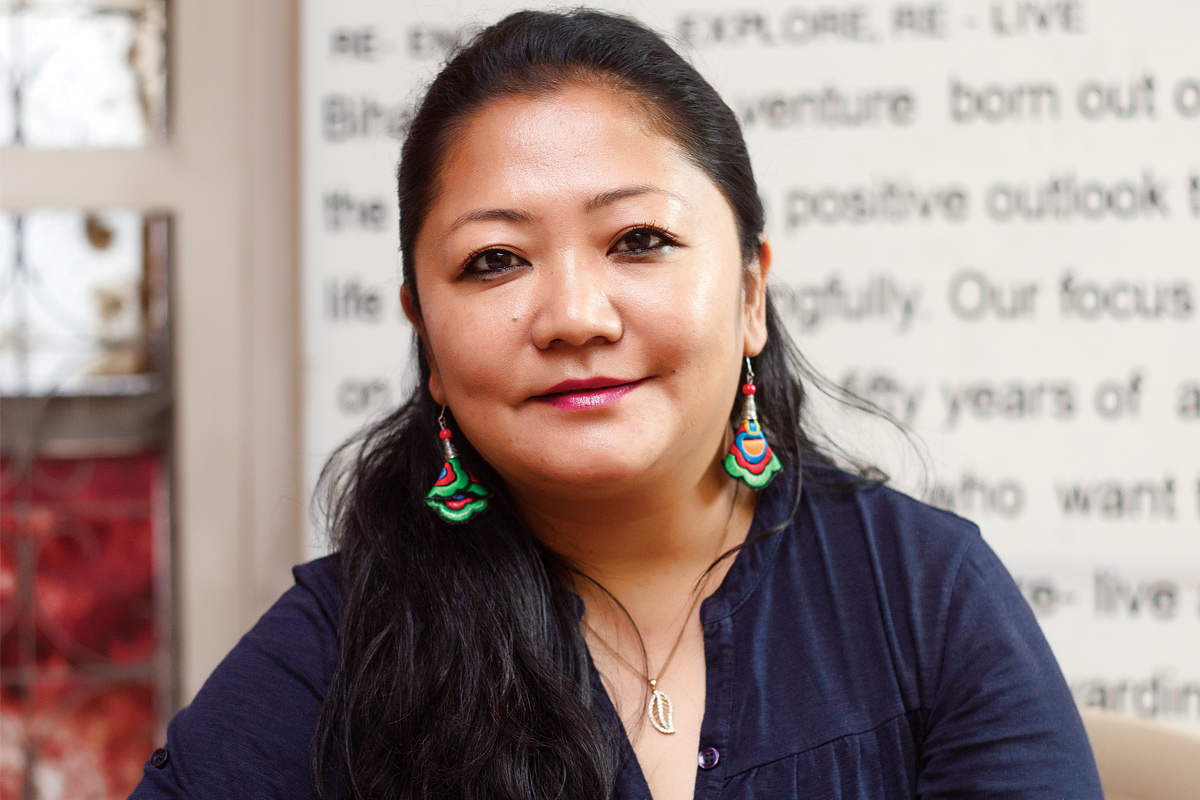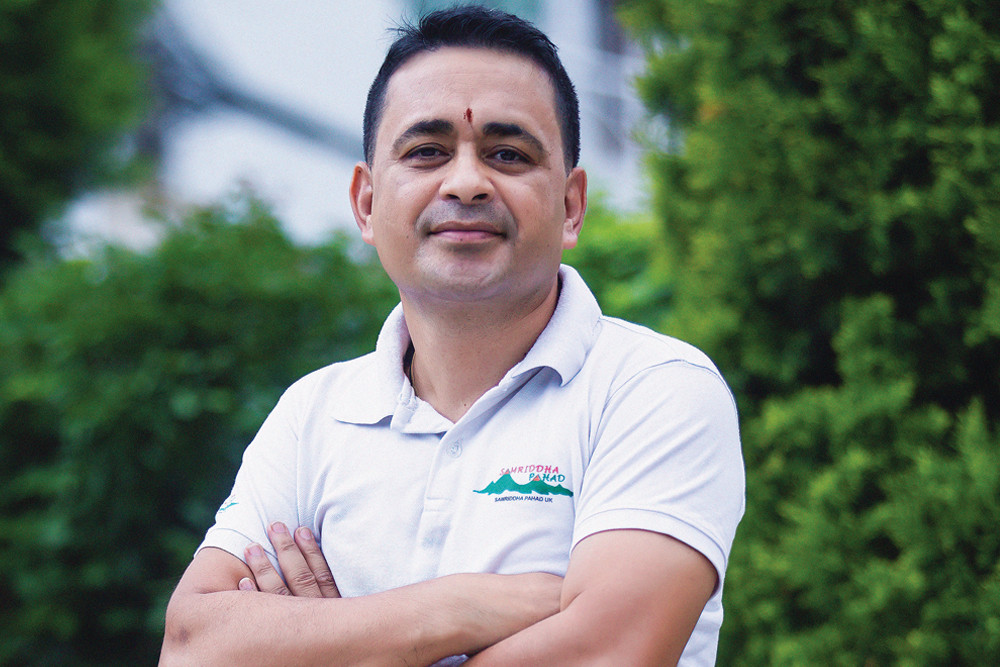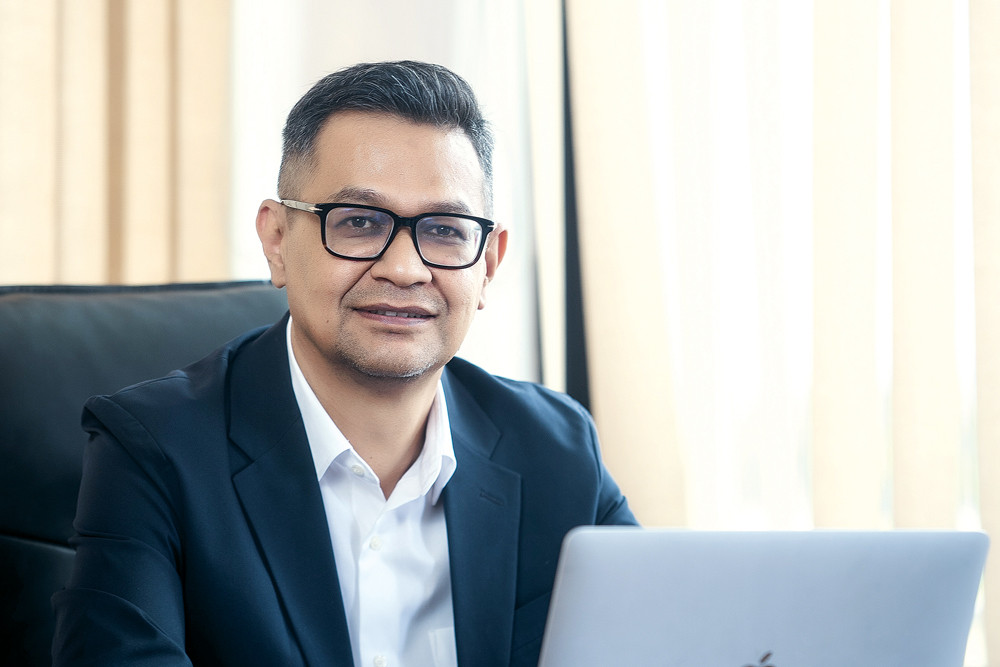
Santoshi Rana is the founder of Bihani Social Ventures, a platform provided to citizens above 50 years of age to “Re-engage, Re-explore and Re-live” – the three missions of Bihani. The social venture addresses the problems arising through ageing in Nepal while implementing a business model with a social entrepreneurial mindset. Bihani generates revenue through events, membership signup and home-base services via their services in three areas: social engagement, mental and physical health, and organisational services. While starting Bihani, Rana was sure that it was going to be a for-profit social enterprise and will not be donor dependent. She states, “Usually in the social sector, people tend to think that money making is bad which is not true. We need money to make the change whether it’s through donations, funds or earning ourselves.”
She earned her Master’s degree in Media and Communication Management from Middlesex University, London, Rana’s previous involvements include her associations with organisations like OXFAM and Haemophilia Society beside working as a campaigner, communication intern, media reader and training consultant. She has also worked with ChangeFusion Nepal supporting social ventures and organising Surya Nepal Asha Social Entrepreneurship Award after coming back to Nepal.
Dibesh Dangol of B360 interviewed Rana to get her views on leadership, the biggest differences between current and previous generation entrepreneurs, and the role of a leader to ensure equality amongst its employees.Excerpts:
How do you define leadership’?
Our society harbours blaming culture. But when you are a leader, blaming others doesn’t help. It is also about grooming your team and walking along with them. In order to be able to lead and be a good leader, I feel that one of the basic requirements that a leader should posses is the ability to accept her weaknesses and understand the strengths of her team. So, leadership according to me is being able to take the team forward by walking along with them.
Whose leadership skills inspire you?
I don’t have any specific person to name but it could be anyone I see on the streets or meet. Before Bihani, I was inspired by grass-root level social entrepreneurs and entrepreneurs I came across. I was inspired by their grit in the face of adversity even when they didn’t have anything.
Is leadership inborn or acquired?
It’s both. Certain skills can be inherited; while there are also skills that one can learn along the way or which come through experience. Overall, as a leader you should be very conscious of how you can grow as a person because if you don’t grow, you can’t inspire growth in others.
What was the biggest challenge you had to encounter while starting Bihani and how did you overcome it?
One of the biggest challenges in Nepal, not just while starting Bihani but even now, is getting the right human resource. Our culture, society and education system are such that we are not made to think. Everything is spoon-fed and our life is planned and decided. We don’t nurture the mental faculty to decide between right and wrong because that is dictated by everyone around us. So, the biggest challenge is to find people who can really think for themselves. Another challenge is self-belief. When people are told that such is right and wrong, at certain times people question their abilities when they are in a higher position or when someone tells them something. So, self-belief and ability to think are some of the biggest challenges I have faced.
To overcome such challenges, I had to groom the team as a leader. Whenever I hire people, I am not concerned about their educational or social backgrounds. I want to know them as individuals. The candidate must feel for the job and should be willing to learn. Such people will make an effort to start thinking on their own and make things happen because they love what they are doing. So, along with ensuring that there is a sense of purpose and self belief in the team, a leader also should be capable to think about what is it that she can do to make someone’s life or job better.
Do you struggle with work-life balance?
Initially, I used to but now I don’t. When I started Bihani, I was very clear that work-life balance is something I am going to maintain. We have very flexible working hours in Bihani and no one works 9am-5pm here. Many of the team members who work here are also college students who come after finishing their classes. So Bihani is also a platform for youths.
I was very sure about giving holidays on Saturdays and Sundays. Also I made sure that I will not be working or make others work during holidays or days off because people get very irritated and frustrated when they are troubled with work during their holidays and days off. I realised this from my previous professional life.
In terms of maintaining work-life balance, I have tried my best to take away all the things I didn’t like when I was working as a team member. The other thing I used to do before was take work home. I realised that work never ends. Now when I leave work, I leave my work behind in the office. This is something I learned from my husband. So, currently I have a good balance between my professional and personal life.
How should a leader lead through change?
It should start from the leader. In Nepal, we have lots of people who talk about change and other things but they themselves don’t follow it. We are very good with complaining and looking at what the problem is but we are not good with initiating the change within or by ourselves. As a leader, the change must begin from oneself and only then do we have the right to implement the same on others.
Do you think gender has anything to do with leadership?
No. It has to do with the person. At Bihani, though we work in the field of aging, we don’t look at people’s age. We look at them as individuals. We have no choice but to respect and accept people the way they are born — either they are a male, a female or any other gender. We shouldn’t be segregating and bringing these questions forward because by asking or dwelling on these questions we are making gender rules more segregated.
There are not many differences between genders. The only thing different is the upbringing and the culture we come from. Though it is scientifically proven that women mature faster than men, we cannot be pointing out and saying that this gender is a better leader and this gender is less of a leader. It depends on people and their determination, objective, focus and vision. So, there are other important factors besides gender to be considered and talked about.
What difference do you see between the past and the present generation entrepreneurs?
Actually, there are not many differences. An entrepreneur is an entrepreneur and it doesn’t matter whether that person was born a decade back or five. The only thing that matters is what that person did when they started their entrepreneurship journey.
One main difference would be access to technology, innovation and knowledge. Until a few years back, mot many people knew about social entrepreneurship. But now with access to resources, technology and global trends, people have started to know what is going on beyond Nepal or in Nepal. More exchange of ideas and knowledge is happening. Social media has also helped in cutting down boundaries. So, the difference is not in terms of entrepreneurs but mainly in terms of environment we have right now. It’s a very exciting environment.
When a person imbarks into an entrepreneurial journey, that itself is a big risk. Many of us who have become entrepreneurs have left a stable job and environment to get into entrepreneurship. One of the biggest challenges is that Nepal is a small country due to which we have limits in terms of our market and customer base. In order to survive, an entrepreneur needs to be completely involved in what s/he is doing and understand the market.
How do you encourage the development of your employees?
I believe in instilling self-belief in them and making them realise that they can do anything they put their heart and soul into. Secondly, the ability to think. When a person is able to think, they’ll be able to do anything. The other thing we believe in at Bihani is the ‘magic of choice’. Choice is not something that we get in our culture or society and everyone should have the right to decide what is it that they want to do. If someone is interested in music, that person can go ahead and help elders through music. We have a national taichi player who is an instructor and leads our health and rehabilitation team as a coordinator. Her job is to use tai chi, which is her passion in life, to help and teach the elders. So, it is all about understanding what your team members’ interests and likes are so that work becomes more about following one’s passion and dreams. If we are telling our elders or people we work with that they should live their lives then it should start from the team as well. Above all, it’s also about exposure. It’s important to expose team members to different opportunities and environment so that they are also able to see, learn and be able to lead which is why being able to think and being confident is very important.


.jpg)


.jpg)